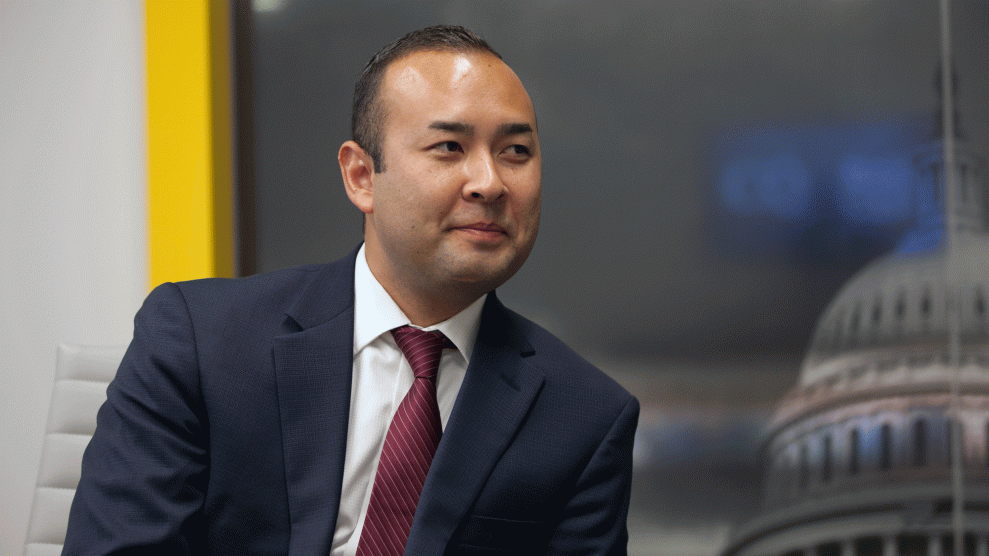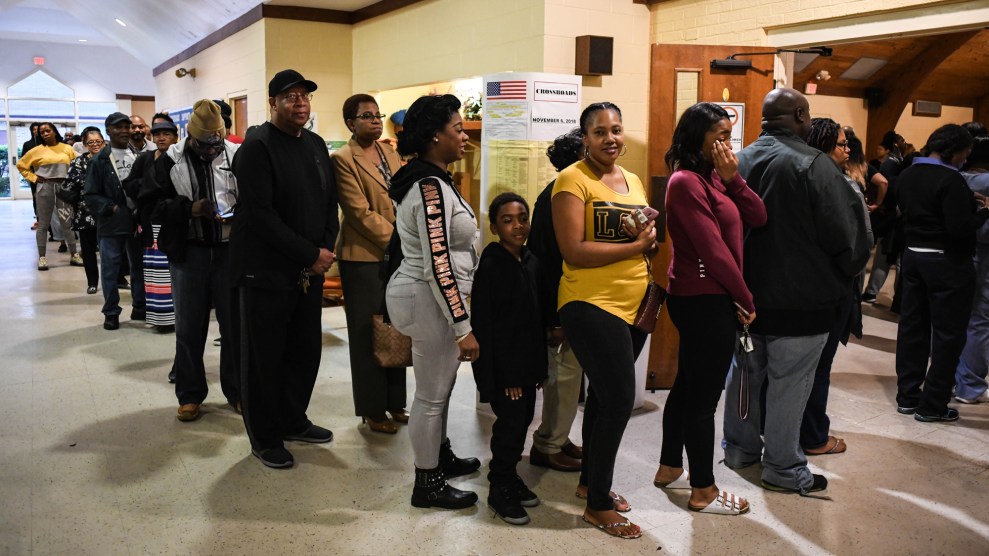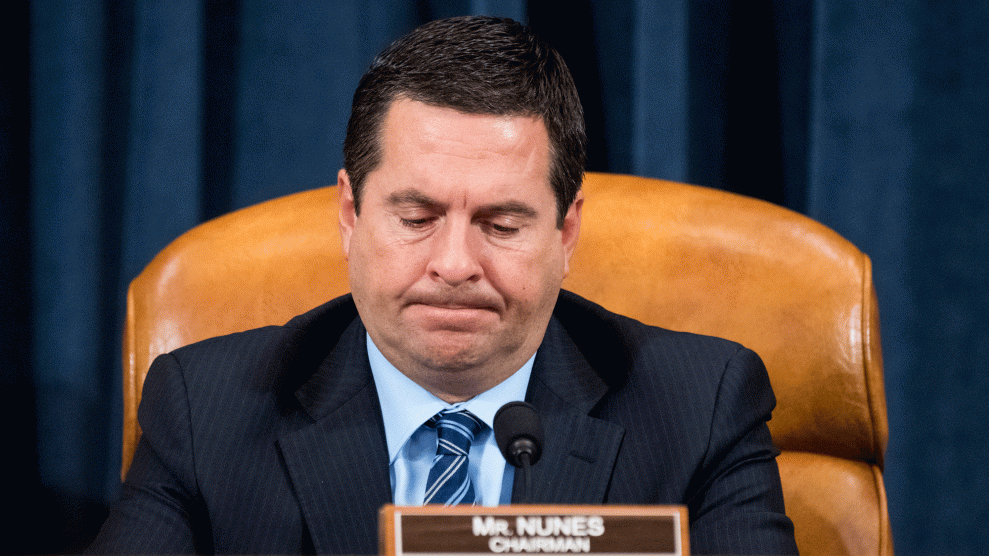
Thomas McKinless/AP
Last November, 34-year-old prosecutor Andrew Janz came within 6 points of unseating Rep. Devin Nunes (R-Calif.)—the closest any Democrat has ever come to defeating the eight-term Republican and then-chair of the House intelligence committee. Along the way, he raised an impressive $10 million and gained a national profile. Now Janz has launched a super-PAC he hopes will raise several million dollars for “protecting voting rights for people all across the country.”
“This is a major problem afflicting our democracy,” Janz says. “I think we need to hit the ground running.” He says his newly registered Voter Protection Project will take an approach that combines goals to “support candidates who want to expand voting rights and punish candidates who stand against voting rights,” he says. The project will also help create and support ballot measures and laws that expand and protect voting laws in order to “lay the groundwork for 2020.”
Fighting Republicans’ voter suppression efforts is becoming an increasingly crowded field for Democrats. About a year after Jason Kander lost to Missouri Sen. Roy Blunt in 2016, he launched Let America Vote, a PAC that works against restrictive voting laws. Similarly, the National Democratic Redistricting Committee, formed in 2017 by former Attorney General Eric Holder, pours money into elections in an effort to counter Republican gerrymandering tactics. Janz, who will run his group while continuing as a prosecutor at the Fresno district attorney’s office, says he hopes to collaborate with these and other groups with similar goals.
His first goal is to get involved in voter access efforts in North Carolina, “where there is this contested election,” he notes, referring to the still-disputed race for the 9th Congressional District, where investigations into possible absentee ballot fraud have entered their third month. What role the Voter Protection Project might play there Janz won’t yet say. From North Carolina, the project will move on “to target specifically battleground states—places like Florida, Missouri, and Wisconsin—where voting rights have been under attack by mostly Republicans over the course of the last decade or so.”
Janz sees his home state of California as a model for how other states should approach voting rights. “We saw each of the seven [Democrat]-targeted districts flip from red to blue, in large part because of expansive voting acts we have here: same-day registration, being able to register to vote at the DMV, and being able to collect ballots at the door. We’ve seen how well these laws work. When more people vote, I think we have a better democracy.” Due to California’s exacting ballot-counting laws, it took 11 days to officially confirm that Democrats had flipped seven House districts, including every single seat in Orange County.
The PAC’s money, Janz says, will come from the same collection of people who helped fund his campaign, which raised an eye-popping amount for a Democrat challenging an incumbent in a historically conservative district. “The fundraising model is going to be exactly the same as we had in the congressional race, with grassroots fundraising and small-dollar donations, people who want to make a difference.” He hopes the group can raise $10 million.
While Janz prepares for his next act, he says he hasn’t decided whether he’ll run for office again, but he’s not “ruling anything out.” Unprompted, he adds, “We ran a very close race; we were within about 5 points in what was deemed to be one of the safest Republican seats in the country. I think he’s now the most vulnerable Republican in the state of California. I don’t think the fight to defeat Devin Nunes is over by any means.”


















